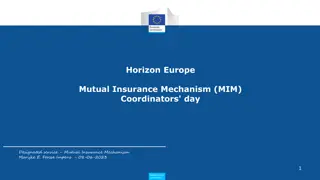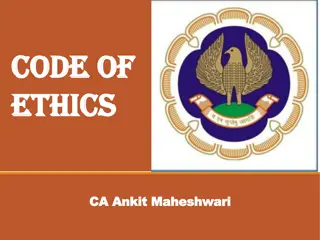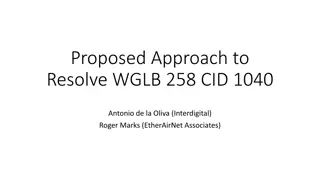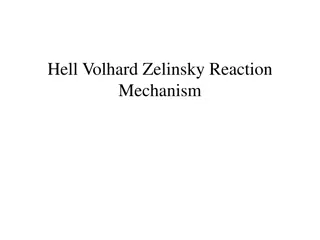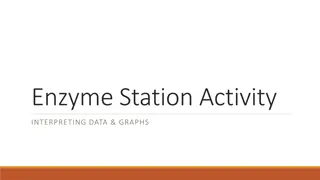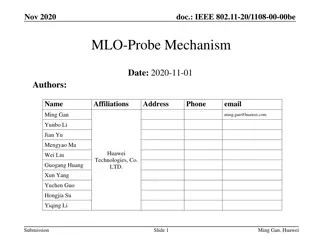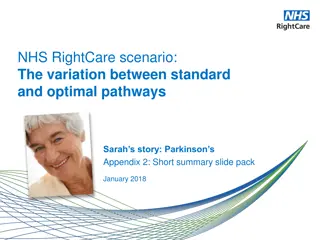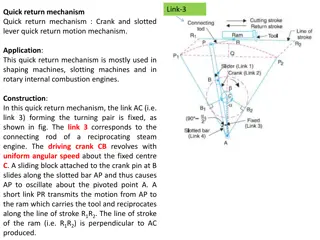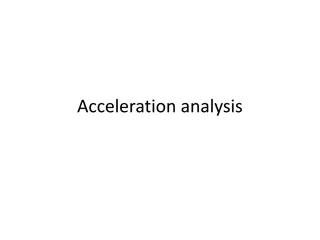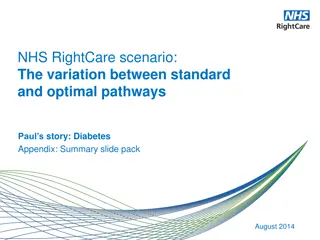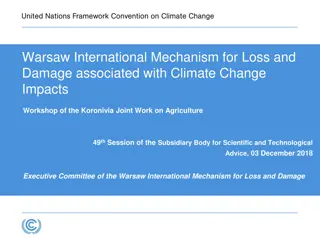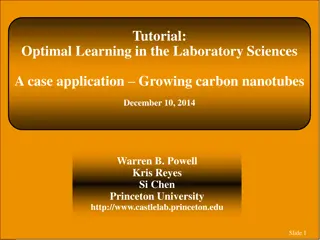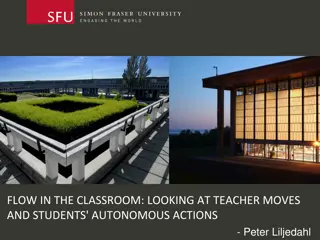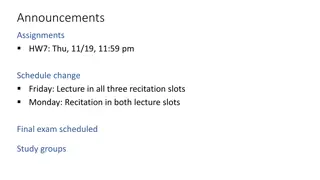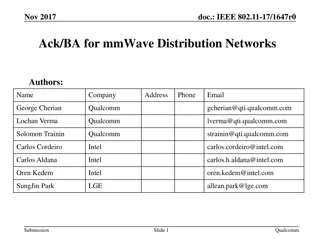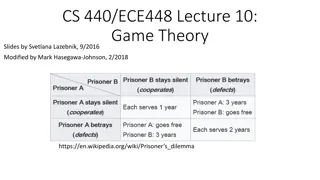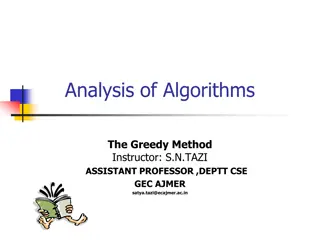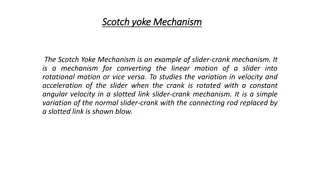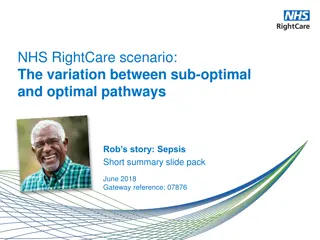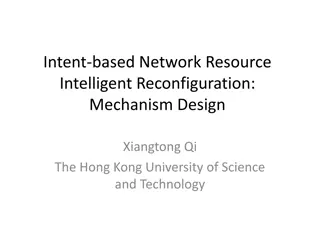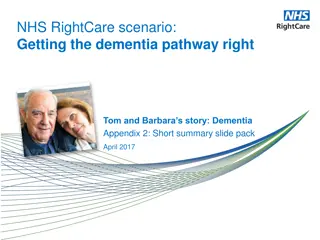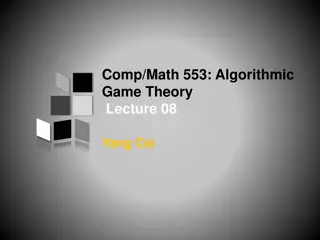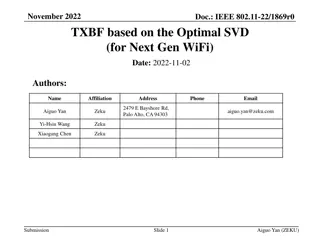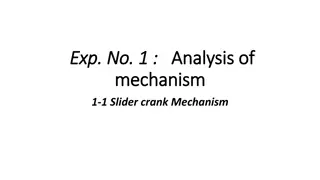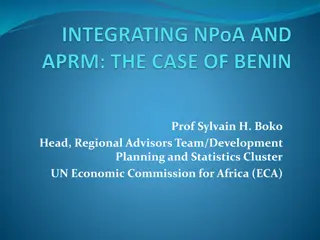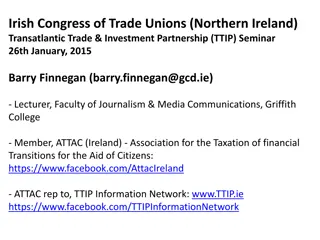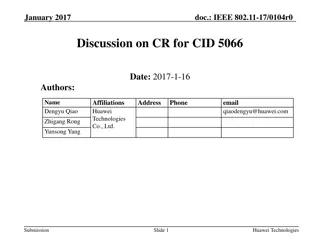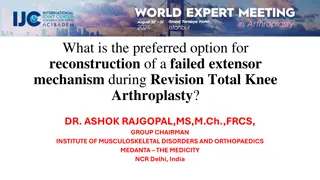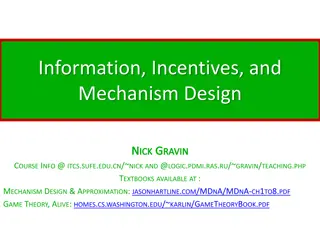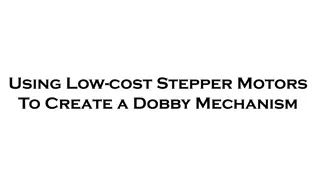Overview of Compliance, Quality Assurance, Ethics, and Disciplinary Mechanism in ICAI
This content discusses various aspects of compliance in the Chartered Accountants sector, including the Quality Assurance Mechanism, Code of Ethics, Disciplinary Mechanism, and details on who can file complaints. It also highlights the amendments in the Chartered Accountants, Cost and Works Accounta
6 views • 37 slides
Optimal Capital Structure and Value Maximization in Traditional Approach
The traditional approach to finance emphasizes achieving the optimal capital structure by balancing debt and equity to minimize the Weighted Average Cost of Capital (WACC) and maximize the firm's overall value. By understanding the relationship between the cost of debt and equity, financial leverage
4 views • 6 slides
Tthe Horizon Europe Mutual Insurance Mechanism (MIM)
The Horizon Europe Mutual Insurance Mechanism (MIM) is designed to protect the financial interests of the EU budget by simplifying administrative processes and providing coverage for grants. It started with the FP7 projects and continues through Horizon Europe projects. Any grant previously covered
2 views • 14 slides
Overview of Ethics, Quality Assurance, and Disciplinary Mechanism in ICAI
This information covers the Code of Ethics, Quality Assurance Mechanism, and Disciplinary Mechanism in the Institute of Chartered Accountants of India (ICAI). It includes details on the ethical standards, peer review boards, disciplinary procedures, and who can file complaints. Additionally, it high
2 views • 37 slides
Proposed Approach for MAC Address Assignment in IEEE 802.11
IEEE 802.1CQ is working on a mechanism to assign local MAC address blocks to end nodes specifically related to IEEE 802.11 standards. The current draft lacks a pre-association mechanism for IEEE 802.11 stations to obtain a local MAC address before association. The proposed remedy suggests specifying
8 views • 7 slides
Grievance Redress Mechanism: Enhancing Project Efficiency
Understanding the Grievance Redress Mechanism (GRM) is crucial for effective project management. This mechanism aims to address complaints and concerns related to project implementation, ensuring transparency and stakeholder engagement. By sensitizing facility GRM focal persons and following structu
4 views • 26 slides
Near-Optimal Quantum Algorithms for String Problems - Summary and Insights
Near-Optimal Quantum Algorithms for String Problems by Ce Jin and Shyan Akmal presents groundbreaking research on string problem solutions using quantum algorithms. The study delves into various key topics such as Combinatorial Pattern Matching, Basic String Problems, Quantum Black-box Model, and mo
1 views • 25 slides
Inter-Agency SEA Community Based Complaints Mechanism in Nigeria
The Inter-Agency SEA Community Based Complaints Mechanism in Nigeria facilitates safe and confidential reporting of complaints, particularly related to sexual exploitation and abuse (SEA), by beneficiaries. Through inter-agency coordination, this mechanism ensures effective collaboration, messaging,
2 views • 18 slides
The Hell-Volhard-Zelinsky Reaction Mechanism
The Hell-Volhard-Zelinsky (HVZ) reaction is a unique halogenation method for carboxylic acids at the alpha carbon, involving phosphorus tribromide and bromine. This mechanism, named after its chemists, requires severe conditions and can lead to specific products or limitations such as beta unsaturat
0 views • 8 slides
Enzyme Activity and Optimal Conditions
This interactive content provides a detailed exploration of enzyme activity through data interpretation and graph analysis. Questions range from identifying the impact of enzymes on specific molecules to determining optimal conditions for various enzyme functions such as pH and temperature. Users de
0 views • 16 slides
IEEE 802.11-20/1108-00-00be MLO Probe Mechanism in AP MLD
This document discusses the design and implementation of a mechanism for a non-AP STA to send a probe request frame to an AP within an AP MLD, allowing the STA to request a probe response containing information on all APs affiliated with the same MLD as the target AP. It proposes the use of new elem
1 views • 12 slides
Contrasting Parkinson's Pathways: Sub-optimal vs Optimal
Sarah's journey with Parkinson's illustrates the stark difference between a sub-optimal pathway leading to distress and a well-coordinated optimal pathway resulting in a peaceful end at home. Timely diagnosis, specialized support, coordinated care, and proactive interventions played key roles in Sar
1 views • 8 slides
Quick Return Mechanism in Machinery
Exploring the application, construction, and velocity analysis of the crank and slotted lever quick return motion mechanism commonly used in shaping machines, slotting machines, and rotary internal combustion engines. The mechanism involves fixed link AC, driving crank CB, sliding block, and short l
8 views • 14 slides
Acceleration Analysis of Slider Crank Mechanism
In this analysis, we calculate the acceleration of the slider at point B, acceleration of point E, and the angular acceleration of the link AB in a slider crank mechanism. The steps involve drawing configuration, velocity, and acceleration diagrams with suitable scales to determine the necessary par
0 views • 12 slides
Optimizing Pathways for Diabetes Management: A Case Study of Paul's Journey
The case study delves into Paul's journey with diabetes, comparing the outcomes of a sub-optimal pathway with an optimal one. Paul's initial struggles with diabetes management led to severe consequences in the sub-optimal pathway, emphasizing the importance of early intervention and improved care co
0 views • 8 slides
Warsaw International Mechanism for Loss and Damage: Addressing Climate Change Impacts
The Warsaw International Mechanism for Loss and Damage focuses on addressing climate change impacts, including extreme events and slow-onset events, in vulnerable developing countries. Through its Executive Committee, the mechanism aims to enhance dialogue, understanding, and action to support those
2 views • 11 slides
Optimal Learning in Laboratory Sciences: Growing Carbon Nanotubes
This tutorial delves into the process of optimal learning in laboratory sciences, focusing on a case study involving the growth of carbon nanotubes. It covers building belief models, running experiments, updating beliefs, designing policies, and optimizing nanotube length using different catalysts w
1 views • 14 slides
Flow in the Classroom and Optimal Experience
This content delves into the concepts of flow in the classroom and optimal experience, focusing on teacher moves, students' autonomous actions, and the key elements that contribute to an optimal experience according to Csikszentmihalyi. The research by Peter Liljedahl sheds light on how clear goals,
0 views • 59 slides
Advancements in Chemical Mechanisms for Aerosol Effects in WRF/Chem Model
This study focuses on the development of a new chemical mechanism in the Weather Research and Forecasting with Chemistry (WRF/Chem) model to address the underestimation of carbonaceous aerosols. The RACM/MADE/SOA-VBS mechanism incorporates advancements in gas-phase chemistry and particle parameteriz
0 views • 12 slides
Introduction to Markov Decision Processes and Optimal Policies
Explore the world of Markov Decision Processes (MDPs) and optimal policies in Machine Learning. Uncover the concepts of states, actions, transition functions, rewards, and policies. Learn about the significance of Markov property in MDPs, Andrey Markov's contribution, and how to find optimal policie
0 views • 59 slides
Acknowledgment Mechanism for mmWave Distribution Networks
This document discusses the proposal for an Acknowledgment (Ack) and Block Acknowledgment (BA) mechanism for Time Division Duplex (TDD) Channel Access in mmWave Distribution Networks. The requirements for sending Ack/BA in different slot structures to accommodate various traffic profiles are outline
1 views • 12 slides
Contrasting Pathways in Wound Care: Betty's Journey
Betty's experience exemplifies the critical impact of optimal healthcare pathways versus sub-optimal ones in wound care management. The sub-optimal pathway led to prolonged suffering, multiple complications, and a two-year healing process, while the optimal pathway facilitated swift treatment, effec
1 views • 8 slides
Game Theory: Applications and Concepts
Game theory delves into systems of interacting agents where outcomes depend on each agent's actions. Explored in various fields, it helps in agent design and mechanism design for optimal strategies and rule-setting. Topics covered include Nash equilibrium, coordination games, anti-coordination games
0 views • 39 slides
Abdul's Journey: Contrasting Standard and Optimal Healthcare Pathways
Abdul's story illustrates the stark contrast between a sub-optimal healthcare pathway, leading to chronic kidney disease and multiple complications, and an optimal pathway where early detection and intervention improved his prognosis. Neglecting follow-up appointments and ignoring symptoms resulted
0 views • 10 slides
Overview of Greedy Method in Algorithm Analysis
The Greedy Method in algorithm analysis involves making locally optimal decisions that eventually lead to a globally optimal solution. This method is illustrated through examples such as finding the shortest paths on special and multi-stage graphs, and solving the activity selection problem. While t
0 views • 16 slides
The Scotch Yoke Mechanism: Experiment and Analysis
The Scotch Yoke Mechanism is a slider-crank mechanism that converts linear motion into rotational motion or vice versa. This experiment involves studying the velocity, acceleration, and displacement of a slider as the crank is rotated with constant angular velocity in a slotted link slider-crank mec
1 views • 5 slides
Contrasting Pathways in Sepsis Care: Rob's Journey
Rob's story illustrates the stark contrast between sub-optimal and optimal pathways in managing sepsis. Delayed recognition and treatment in the sub-optimal pathway led to severe complications, whereas timely intervention in the optimal pathway resulted in improved outcomes. The importance of early
1 views • 7 slides
Intelligent Mechanism Design for Intent-Based Network Resource Reconfiguration
An exploration of intent-based network resource reconfiguration through intelligent mechanism design, focusing on concepts such as intent setting, abstract views of intent networks, mechanism design, network traffic control examples, system optimization, and underlying optimization strategies. Vario
0 views • 11 slides
Optimizing Dementia Care Pathways: A Case Study of Tom & Barbara
Tom's journey through dementia highlights the stark contrast between sub-optimal and optimal pathways. Delayed diagnosis, hospital admissions, and caregiver strain characterize the sub-optimal route, leading to poor outcomes and high costs. In contrast, early intervention, comprehensive support, and
0 views • 7 slides
Mechanism Design and Auction Theory in Game Economics
Today's lecture covers the concepts of mechanism design and single-item auctions in the field of algorithmic game theory. Mechanism design focuses on reverse-engineering existing game systems to achieve desired objectives, while auctions play a crucial role in various scenarios such as online market
0 views • 30 slides
Optimal SVD Based TXBF for Next-Gen WiFi Development
This November 2022 document focuses on the application of Optimal Singular Value Decomposition (SVD) in Transmit Beamforming (TXBF) for the next generation of WiFi standards. It discusses the background, objectives of UHR/SG, advantages of Optimal SVD-based TXBF, simulation results, and potential ch
0 views • 14 slides
Analysis of Slider-Crank Mechanism and Experimental Data
Slider-crank mechanism analysis involves understanding the transformation of input motion into desired output motion. This mechanism consists of a crank, coupler, slider, and ground link, converting circular motion into linear motion. Experimental procedures involve setting crank angles and recordin
0 views • 6 slides
The African Peer Review Mechanism (APRM) and Benin's Progression
The African Peer Review Mechanism (APRM) is a governance mechanism voluntarily adopted by African nations to promote democracy, stability, and sustainable development. This article discusses the importance of the APRM, its stages, and Benin's progression within the mechanism, showcasing key indicato
0 views • 17 slides
Understanding Our Political Economy Through Economic Theory and Price Mechanism
Explore the intricate dynamics of political economy through neoclassical economic theory, price mechanism analysis, and the role of land as a factor of production. Delve into concepts like labor demand, capital goods, credit markets, and the limitations of the price mechanism in certain contexts. In
0 views • 30 slides
Critique of Transatlantic Trade & Investment Partnership (TTIP) and ISDS Mechanism
The content discusses the concerns and criticisms surrounding the Transatlantic Trade & Investment Partnership (TTIP) and the Investor-State Dispute Settlement (ISDS) mechanism. It highlights issues such as undemocratic practices, economic myths, impacts on workers' rights, safety regulations, clima
0 views • 44 slides
Discussion on Improving Transmission Efficiency in IEEE 802.11 TWT Mechanism
This document proposes enhancements to the IEEE 802.11 TWT mechanism to address issues related to random access Resource Units (RU) utilization. By defining a mechanism to optimize RU allocation for TWT scheduled STAs, the proposal aims to improve transmission efficiency and power saving, particular
0 views • 11 slides
Preferred Option for Reconstruction of Failed Extensor Mechanism in Revision Total Knee Arthroplasty
Chronic extensor mechanism failure in revision total knee arthroplasty is a challenging complication requiring appropriate reconstruction methods. This study analyzes 21 studies on chronic extensor mechanism failure, including 484 patients treated with different reconstruction approaches.
0 views • 18 slides
Computational Mechanism Design
Computational Mechanism Design focuses on creating incentive-compatible protocols for systems with self-interested agents. The goal is to design mechanisms that encourage truthful behavior and achieve optimal solutions despite individual agents' self-interest. Resource allocation problems, distribut
0 views • 5 slides
Mechanism Design and Incentives Overview
The course on Information, Incentives, and Mechanism Design by Nick Gravin covering topics like mechanism design, equilibrium, optimal mechanism design, Bayesian approximation, and more. Dive into economic and computational systems, along with examples like residency matching and award auctions. Dis
0 views • 32 slides
Using Low-cost Stepper Motors for Dobby Mechanism
This project explores the utilization of low-cost stepper motors to create a dobby mechanism for a loom. It details the stepper motor requirements, including weight to lift and lever arm dimensions. The project also considers motor options, pricing, and control electronics, aiming for an efficient a
0 views • 5 slides


